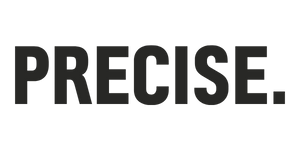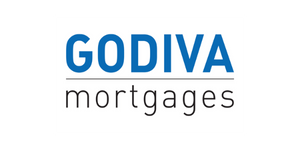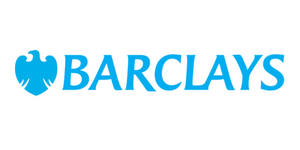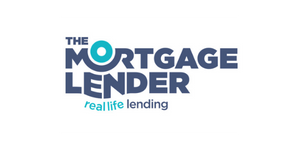Tailored mortgage advice for medical professionals
Getting a mortgage as a doctor or medical professional may not be as straightforward as it is for those in other professions. This can be for several reasons:
- Having high levels of student debt
- Working short-term or complex contracts
- Having diverse or fluctuating income structures
- A history of moving frequently for work and training
At IMC, we’re whole-of-market mortgage brokers. Our specialist mortgage brokers for doctors are fully equipped to help you navigate the mortgage market and find the best mortgage deal for your needs.
Key mortgage challenges for medical professionals
Medical professionals often face unique hurdles when applying for a mortgage with mainstream lenders due to the specific nature of their careers:
- Complex Income Structures: Your income might come from a mix of NHS salary, private practice, locum shifts, on-call pay, or multiple trusts. Many traditional lenders struggle to accurately assess and factor in all these diverse income streams.
- Variable Hours and Contracts: Roles involving irregular shifts, overtime, or short-term/zero-hour contracts can make income appear inconsistent, even if your annual earnings are high.
- Frequent Relocation for Training: Moving between hospitals or regions for training can result in a fragmented employment history, which can be challenging for standard mortgage applications.
- High Student Debt: The significant student debt often carried by medical professionals can impact affordability assessments, even with strong earning potential.
At IMC Mortgage Brokers, we understand these nuances and work with lenders who take a more flexible, holistic view of your financial situation.
Which medical profession do you belong to?
As a junior doctor, now known as a resident doctor, it is absolutely possible to get a mortgage. However, there are some things that you should be aware of before you dive in.
If you’re a resident doctor, you likely have a variable income due to complex employment contracts, or you move around a lot to fulfil your training needs, working on temporary or zero-hour contracts. So, although you’ve completed your medical degree, from a high street lender’s perspective, these factors can make a resident doctor a higher-perceived risk than someone with a stable, fixed income.
However, fear not. Just because you don’t fit the criteria for some lenders, doesn’t mean that you won’t fit the criteria of others. Special mortgages for doctors can be found through specialist lenders.
If you are newly qualified or still a doctor in training, you may still be able to get a mortgage. Many specialist lenders are willing to consider your future guaranteed salary increases based on your signed contracts (e.g., progression from Foundation Year 1 to Foundation Year 2), allowing you to borrow more from day one.[3]
Due to this area of lending being so specialised, we recommend that you seek professional advice to ensure you’re getting the right deal for your situation. At IMC Mortgage Brokers, we understand the busy schedules of resident doctors and how dealing with a rejected mortgage application adds stress that could be avoided. You can count on the support of the knowledgeable mortgage brokers and advisors at IMC Mortgage Brokers.
Working as a locum often means dealing with irregular shifts, variable hours, and occasional employment gaps, whether you rely on locum work entirely or balance it with another job. Traditional lenders may see the unpredictability of locum income as a challenge when assessing mortgage affordability.
However, many smaller, specialist lenders take a more flexible and realistic approach. Instead of requiring a permanent contract or consistent hours, they evaluate an average of your income over several months or years to determine your mortgage affordability.
To mitigate the risk, some lenders may even ask you to provide a higher deposit, especially if your income fluctuates significantly.
With frequent overtime, variable shifts, or income streams from multiple roles, many mainstream lenders struggle to accommodate the financial nuances when assessing mortgage affordability for GPs. Despite the high-income potential of GPs, standard mortgage underwriting can be restrictive.
If you’ve recently become self-employed or moved to a new practice, securing a mortgage through traditional lenders can be difficult. Most lenders require 2–3 years' worth of accounts to verify income, which can be a significant obstacle for newly self-employed GPs who haven’t yet established a long financial history. Additionally, fluctuating income from locum work or overtime isn’t always recognised in full by mainstream lenders, leaving you underserved despite your strong earning capacity.
Thankfully, specialist lenders do exist who understand the complexities of being a GP and offer tailored mortgage solutions. These lenders take a more flexible approach to assessing your income by considering alternative financial indicators, including projected income from a new partnership or private practice.
As a whole-of-market mortgage broker, we at IMC Mortgage Brokers have access to exactly that, the whole of the market. Our advisors are on hand to help you get the right mortgage for your needs.
As a nurse, your work schedule can often be unpredictable, with varying shifts, overtime, and potentially part-time contracts. These factors can create challenges when applying for a mortgage, particularly with mainstream lenders who may struggle to assess your variable income accurately.
Many traditional lenders typically require a stable income history of 2–3 years to verify your financial situation. However, this can be problematic for nurses who work on short-term contracts or are in roles that involve frequent shifts, making it difficult to meet conventional lending criteria.
Fortunately, specialist lenders recognise the unique financial circumstances of healthcare professionals, including nurses. They offer more flexible mortgage solutions that consider:
- Your average income over a specified period, rather than just the last few years
- Additional income from overtime or shift differentials
- The stability provided by your role within the healthcare system
At IMC Mortgage Brokers, we are dedicated to helping nurses navigate the mortgage market to find tailored solutions that fit their needs. Whether you’re a first-time buyer, looking to remortgage, or interested in buy-to-let options, our experienced advisors can connect you with lenders who understand your profession.
As a medical consultant, you occupy a vital role within the healthcare system, often balancing multiple responsibilities, including patient care, administrative duties, and possibly private practice. With a typically higher earning potential, securing a mortgage may seem straightforward; however, your unique financial circumstances can present challenges, particularly with mainstream lenders.
Many lenders may not fully appreciate the complexities of your income, which can include a mix of NHS salaries, private practice earnings, and additional fees for consultations or surgeries. Traditional mortgage providers often require a minimum of 2–3 years’ worth of income documentation, which can be cumbersome for consultants who may have recently transitioned into private practice or changed employment.
Fortunately, specialist lenders recognise the specific needs of medical consultants and offer more flexible mortgage solutions. They may consider:
- Your average income over a designated period, rather than strictly adhering to conventional income histories.
- Income from consulting, private practice, and any other relevant financial streams.
- Your potential for future earnings, which may be significant in this field.
At IMC Mortgage Brokers, we understand the demands placed on medical consultants and are here to help you navigate the mortgage landscape. Whether you are a first-time buyer, seeking a remortgage, or exploring buy-to-let opportunities, our dedicated advisors will work with you to find the right mortgage solution tailored to your situation.
What types of mortgages can doctors get?
Doctors, like other professionals, have access to a wide range of mortgage options. However, because of the unique nature of their income, from salaried positions to self-employed or locum work, there are specialist mortgages tailored specifically for medical professionals. These include:
- Variable-Rate Mortgages: With interest rates tied to the lender’s standard variable rate (SVR) or the Bank of England base rate, payments can increase or decrease over time.
- Tracker Mortgages: Typically tied to the Bank of England’s base rate, these mortgages follow changes in the rate, so your monthly payments may vary.
- Offset Mortgages: These mortgages link your savings account to your mortgage, reducing the amount of interest you pay by "offsetting" your savings balance against your mortgage debt.
- Fixed-Rate Mortgages: Offering a stable interest rate and predictable monthly payments, ideal for those who prefer certainty over fluctuating rates.
Should doctors get a repayment or interest-only mortgage?
Choosing between a repayment and interest-only mortgage is a significant decision for doctors. A repayment mortgage ensures that you gradually pay off both the interest and the loan amount, ultimately owning the property outright at the end of the term. This option provides security and peace of mind.
An interest-only mortgage, on the other hand, requires you to pay only the interest each month, making it a lower monthly payment option. However, the loan itself must be repaid in full at the end of the term, which may require additional financial planning. This option can be appealing for doctors with higher earnings or who are planning to sell or refinance in the future, but it does carry more risk if not managed carefully.
Why might doctors consider an offset mortgage?
Offset mortgages are particularly attractive to doctors because they allow you to reduce the interest on your mortgage by offsetting it against savings. For example, if you have £50,000 in savings and a £200,000 mortgage, you will only pay interest on £150,000.
This can be an efficient option for doctors who may have significant savings but want to maintain flexibility. It also allows for tax advantages, as your savings reduce your mortgage balance without earning taxable interest.
Are there specific mortgages for doctors?
Yes, certain lenders offer special mortgages for doctors that cater to their unique financial situations. These lenders recognise the potential for high future earnings, irregular income (for locum or private practice doctors), and challenges like student debt or short-term contracts.
These bespoke products may come with lower deposit requirements, higher loan-to-income ratios, and more flexible affordability assessments that consider the medical profession’s unique income structure
How much can you borrow as a doctor?
The best mortgage for doctors will depend on individual circumstances such as employment status, income type, and financial goals. Special mortgage loans for doctors often offer preferential rates or higher lending limits, while considering factors like additional income from overtime, bonuses, or private work.
Working with a mortgage broker who understands the complexities of the medical profession can help you find the best product suited to your specific needs.
NHS mortgages
As an NHS employee, you may have access to special mortgage deals that cater to the specific needs of healthcare professionals. While there isn’t a specific “NHS Mortgage,” many lenders offer preferential terms to NHS staff, recognising the stability and career progression associated with working in healthcare.
Can I get a mortgage if I work for the NHS?
Yes, working for the NHS can enhance your mortgage prospects. Many lenders appreciate the secure employment and stable income associated with NHS roles. However, depending on your role or contract type (e.g., permanent vs. temporary), a specialist mortgage broker can help you navigate the best options available.
Do NHS staff get better mortgage rates?
Some lenders offer better mortgage rates or lower deposit requirements for NHS staff as part of special professional mortgage schemes. These rates can vary, so working with a mortgage broker who understands NHS employment structures can help you find the most competitive offers.
What is the NHS property scheme?
The First Homes Scheme provides opportunities for NHS staff looking to purchase homes. These mortgages for NHS staff and key workers are available depending on your local council’s criteria on what constitutes a key worker and may be available for:
- Key workers, as defined by the council
- People who already live in the area
- Those on lower incomes
NHS Staff? Unlock Exclusive Mortgage Benefits!
Mortgage Broker for Doctors
While many doctors may assume that going to their existing bank for a mortgage is the simplest option, this can often be limiting. Banks typically offer their own mortgage products, which means you're only seeing a small selection of what's available in the wider market. Additionally, banks often rely on strict, traditional lending criteria that may not account for the unique income structures of doctors, such as irregular locum earnings, private practice income, or multiple roles.
Banks may not take into consideration the potential for high future earnings that doctors can command or offer the flexibility needed when dealing with complex financial situations. As a result, you could miss out on better rates or more favourable mortgage terms that are designed specifically for medical professionals.
That’s where a whole-of-market mortgage broker can make all the difference. Brokers have access to a wider range of lenders, including those who specialise in offering mortgages tailored to doctors. These lenders are more attuned to the challenges doctors face and can provide bespoke mortgage products that are more flexible and accommodating.
At IMC Mortgage Brokers, we have years of experience in securing mortgages for GPs, consultants, locums, and all manner of medical professionals. Our deep understanding of the healthcare industry ensures we can connect you with lenders who are familiar with your unique circumstances. Whether you're a first-time buyer, remortgaging, or looking for buy-to-let opportunities, we are here to help.
Contact us now to discuss how we can help you find the lender and mortgage that are right for you.
Protecting your mortgage
When taking on a mortgage, it's essential to protect yourself against unexpected life events that could impact your ability to manage repayments. Mortgage protection safeguards your financial commitments and your family’s future, ensuring you’re covered in case of illness, unemployment, or worse.
At IMC Mortgage Brokers, we offer tailored protection plans, including life insurance, critical illness cover, and income protection. For more information on securing your mortgage and protecting your loved ones, explore our full mortgage protection options.
- - What happens to my mortgage if I die?
- - Do I need an Agreement in Principle (AIP)?
- - What is a Professional Mortgage?
- - How do lenders view high student debt for doctors?
- - What specific documents might I need for a doctor's mortgage?
- - Can I get a mortgage if I'm on a work visa or recently moved to the UK?
- - Can I get a mortgage for a high-value property or a very large loan as a doctor?























